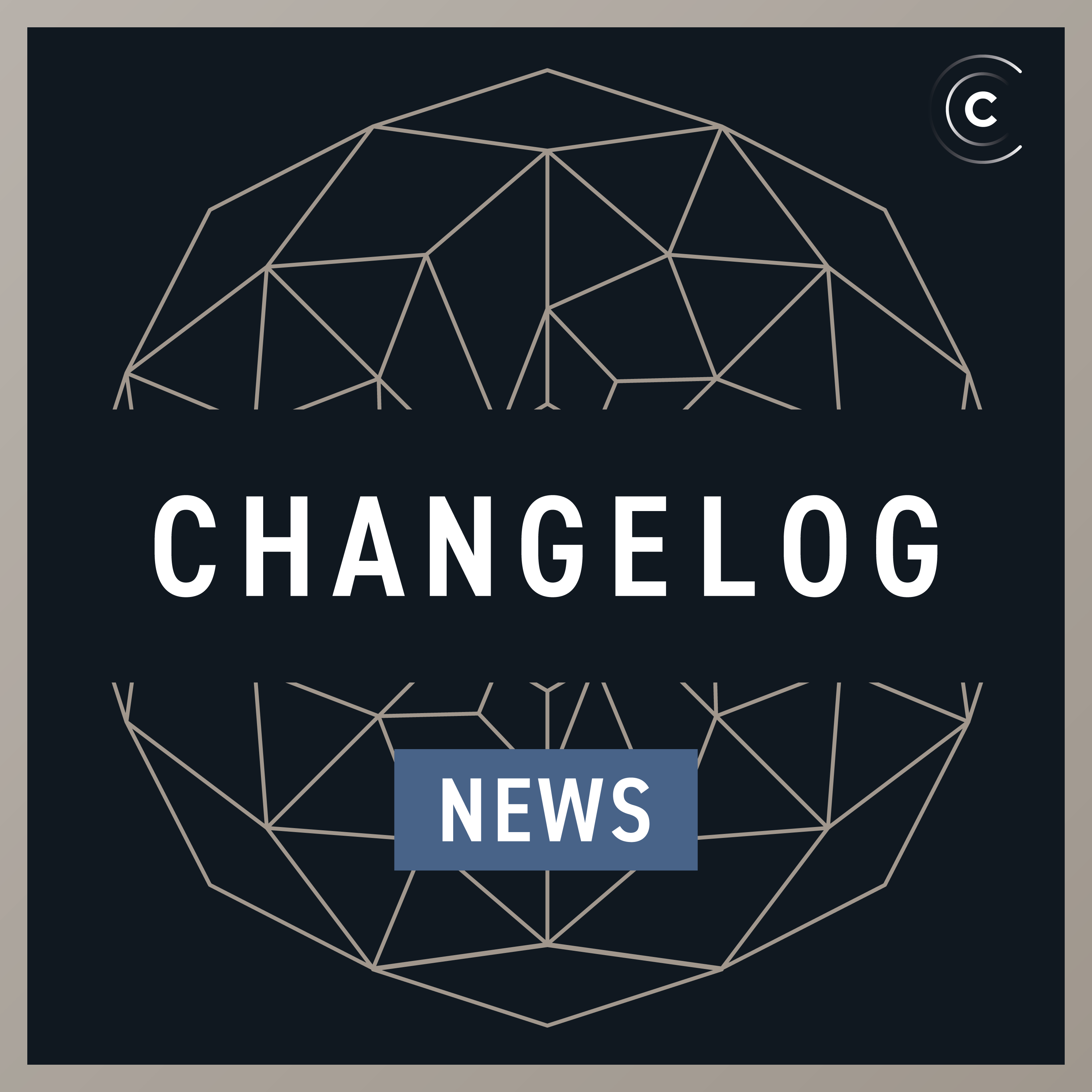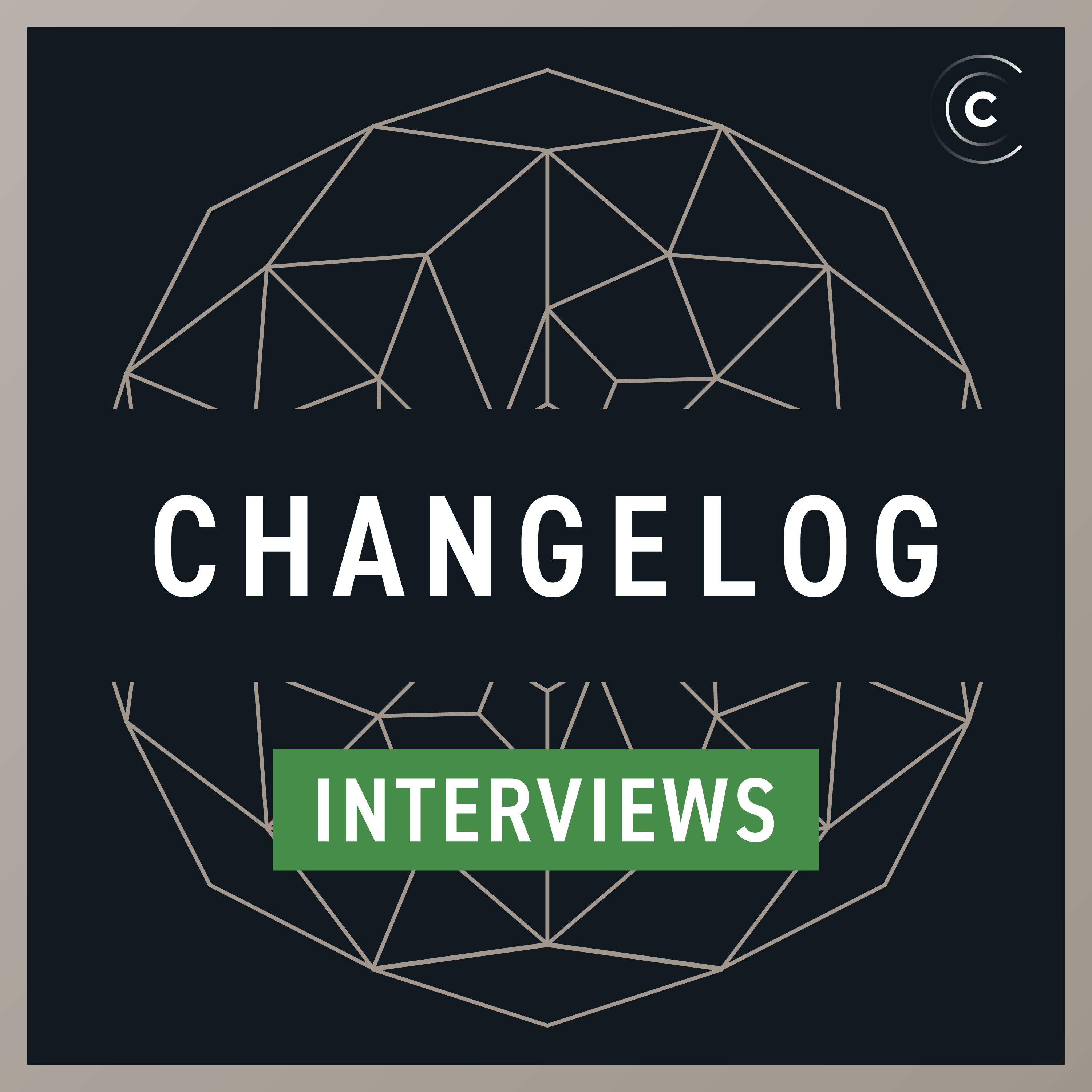Is it too late to opt out of AI? (Friends)
Digest
This episode of Changelog delves into the multifaceted impact of AI on various industries, featuring insightful discussions with Louis Via, a lawyer and technologist, and Nikita Shamganov, co-founder and CEO of Neon. The conversation begins with Louis's perspective on the recent content deals struck between news organizations and AI companies, highlighting the potential implications for copyright and the future of journalism. He emphasizes the uncertainty surrounding the legality and ethicality of these deals, particularly in light of the growing reliance on AI-generated content. The discussion then shifts to the legal implications of AI, exploring the challenges of adapting legal frameworks to accommodate rapidly evolving technologies. Louis highlights the ambiguity surrounding fair use in the context of AI training and the potential for legal disputes to shape the future of AI development. The conversation further examines the impact of AI on software development, with Louis expressing optimism about the potential for AI to enhance productivity and create new opportunities for developers. However, he also acknowledges the potential for AI to introduce new forms of technical debt and security vulnerabilities. The episode concludes with a broader reflection on the societal implications of AI, emphasizing the need for careful consideration of unintended consequences and the challenges of navigating a world where AI is increasingly integrated into our lives. The hosts discuss the potential for AI to disrupt various industries, including news, law, and finance, and the challenges of navigating a world where AI is increasingly integrated into our lives. They also explore the potential benefits of AI, such as its ability to enhance productivity, automate tasks, and improve access to information. The conversation highlights the need for careful consideration of ethical, legal, and societal implications, as well as the importance of ongoing dialogue and adaptation to the evolving landscape of AI.
Outlines

Intro and Sponsor: Chronator
This Chapter introduces the podcast and its sponsor, Chronator, a tool for monitoring cron jobs. The hosts discuss the benefits of Chronator for home lab users and highlight its free hacker version and paid home lab plan.

AI's Impact on News and Law
This Chapter features a conversation with Louis Via, a lawyer and technologist, about the recent content deals struck between news organizations and AI companies. Louis discusses the potential implications for copyright, the future of journalism, and the legal challenges of adapting to rapidly evolving technologies.

Sponsor: Neon
This Chapter features a discussion with Nikita Shamganov, co-founder and CEO of Neon, about the company's serverless Postgres offering and its impact on the future of database technology.

AI and Legal Agreements
This Chapter continues the conversation with Louis Via, focusing on the potential for AI to assist with legal agreements, particularly in drafting clauses and sections. Louis discusses the challenges of comparing AI-generated legal documents to human-crafted ones and the need for a nuanced understanding of AI's capabilities in this domain.

The Societal Impact of AI
This Chapter delves into the broader societal implications of AI, exploring the question of whether it's too late to opt out of its influence. Louis and the hosts discuss the potential for AI to disrupt various industries, including news, law, and finance, and the challenges of navigating a world where AI is increasingly integrated into our lives.

Sponsor: ExpressVPN
This Chapter features a discussion about the importance of using a VPN to protect online privacy from ISPs and other tech giants. The hosts recommend ExpressVPN as a reliable and secure VPN service.

AI in Fiction and Reality
This Chapter explores the portrayal of AI in fiction, comparing it to the realities of AI development. The hosts discuss various AI-themed movies and TV shows, including Her, Silicon Valley, and Terminator, and consider the potential for AI to surpass human capabilities.

AI's Impact on Software Development
This Chapter focuses on the impact of AI on software development, with Louis discussing the potential for AI to enhance productivity and create new opportunities for developers. He also acknowledges the potential for AI to introduce new forms of technical debt and security vulnerabilities.

The Hype Cycle of Innovation
This Chapter explores the hype cycle of innovation, using the example of the Segway to illustrate how new technologies are often overhyped and fail to live up to expectations. The hosts discuss the importance of considering the existing infrastructure and context when evaluating the potential impact of new technologies.

Positive Impacts of AI
This Chapter focuses on the potential positive impacts of AI, with the hosts discussing examples such as the use of AI to automate tasks, improve access to information, and enhance productivity. They also discuss the potential for AI to address societal challenges, such as reducing traffic accidents and improving education.

Upstream: A Celebration of Open Source
This Chapter features a discussion about Upstream, a one-day virtual event celebrating open source. The hosts discuss the theme of the event, "Unusual Solutions to the Usual Problems," and highlight some of the topics that will be covered, including government regulation of open source software, the challenges of paying open source maintainers, and the importance of supporting open source maintainers.
Keywords
AI
Artificial intelligence (AI) is the simulation of human intelligence processes by computer systems. These processes include learning (the acquisition of information and rules for using the information), reasoning (using rules to reach approximate or definite conclusions), and self-correction. AI research has been highly successful in developing effective techniques for solving a wide range of problems, from game playing to medical diagnosis.
Chronator
Chronator is a tool for monitoring cron jobs, offering features such as email alerts, basic status pages, and data retention. It provides a simple and affordable solution for developers who need to monitor their cron jobs, particularly for home lab environments.
Neon
Neon is a company that provides a serverless Postgres offering, enabling developers to easily deploy and manage Postgres databases without the need for traditional infrastructure. Neon's platform offers features such as on-demand scalability, bottomless storage, and database branching, making it a popular choice for developers who need a flexible and reliable database solution.
Copyright
Copyright is a type of intellectual property that protects original works of authorship, including literary, dramatic, musical, and certain other intellectual works. Copyright owners have the exclusive right to reproduce, distribute, perform, display, and create derivative works based on their copyrighted works.
Fair Use
Fair use is a legal doctrine that permits limited use of copyrighted material without permission from the copyright holder. Fair use is often invoked for purposes such as criticism, comment, news reporting, teaching, scholarship, and research. The determination of whether a particular use is fair use is based on a number of factors, including the purpose and character of the use, the nature of the copyrighted work, the amount and substantiality of the portion used, and the effect of the use on the potential market for or value of the copyrighted work.
Technical Debt
Technical debt is a metaphor used to describe the consequences of choosing an easy solution over a better solution in software development. Technical debt can accumulate over time, leading to increased development costs, reduced code quality, and increased security risks. It is often described as a trade-off between short-term gains and long-term costs.
LLM
A large language model (LLM) is a type of artificial intelligence (AI) that is trained on a massive amount of text data. LLMs are capable of generating human-like text, translating languages, writing different kinds of creative content, and answering your questions in an informative way. Examples of LLMs include GPT-3, LaMDA, and BERT.
GitHub
GitHub is a web-based platform for version control using Git. It provides a central repository for software code, allowing developers to collaborate on projects, track changes, and manage code versions. GitHub also offers features such as issue tracking, pull requests, and code reviews, making it a popular platform for open-source software development.
Fediverse
The Fediverse is a network of interconnected social media platforms that use the ActivityPub protocol. This protocol allows users to interact with each other across different platforms, creating a decentralized and interoperable social media ecosystem. Examples of Fediverse platforms include Mastodon, Pixelfed, and PeerTube.
ExpressVPN
ExpressVPN is a virtual private network (VPN) service that encrypts internet traffic and routes it through a secure server, protecting user privacy and security. ExpressVPN offers a wide range of server locations, fast connection speeds, and strong security features, making it a popular choice for users who want to protect their online activity.
Upstream
Upstream is a one-day virtual event celebrating open source. The event brings together open source maintainers and executives to discuss the challenges and opportunities facing the open source community. The theme of the 2023 event is "Unusual Solutions to the Usual Problems." Upstream is a platform for sharing knowledge, fostering collaboration, and promoting the growth of the open source ecosystem.
Tie Lift
Tie Lift is a non-profit organization that provides financial support to open source maintainers. The organization's mission is to help maintainers sustain their work and prevent burnout. Tie Lift provides a variety of funding mechanisms, including grants, sponsorships, and donations. The organization also works to raise awareness of the importance of supporting open source maintainers.
Q&A
What are the potential implications of the recent content deals struck between news organizations and AI companies?
These deals raise concerns about copyright, the future of journalism, and the legal challenges of adapting to rapidly evolving technologies. There's uncertainty surrounding the legality and ethicality of these deals, particularly in light of the growing reliance on AI-generated content.
How does AI impact the legal field?
AI presents challenges for adapting legal frameworks to accommodate rapidly evolving technologies. The ambiguity surrounding fair use in the context of AI training and the potential for legal disputes are key concerns. AI could also assist with legal agreements, particularly in drafting clauses and sections, but there are challenges in comparing AI-generated documents to human-crafted ones.
Is it too late to opt out of AI's influence?
The conversation explores the societal implications of AI, suggesting that it's likely too late to opt out entirely. The potential for AI to disrupt various industries and the challenges of navigating a world where AI is increasingly integrated into our lives are discussed.
What are the potential benefits and drawbacks of AI for software developers?
AI has the potential to enhance productivity and create new opportunities for developers. However, it could also introduce new forms of technical debt and security vulnerabilities. The conversation highlights the need for careful consideration of these potential consequences.
How can we address the challenges of long-term software maintenance in a world where AI is increasingly prevalent?
The conversation explores the challenges of maintaining software projects over long periods, particularly in light of the potential for AI to introduce new complexities. The need for sustainable software development practices and the potential for AI to both assist and complicate these efforts are discussed.
What are some of the key differences in how AI is being adopted in different parts of the world?
The conversation highlights the varying rates and approaches to AI adoption in different regions, including Silicon Valley, the US, the EU, Japan, and China. These differences reflect cultural, political, and technological factors.
What are some of the ethical considerations surrounding the use of AI?
The conversation raises ethical concerns about the potential for AI to exacerbate existing inequalities and create unintended consequences. The need for careful consideration of these issues and the development of ethical guidelines for AI development are emphasized.
How can we navigate the uncertainty surrounding the future of AI?
The conversation acknowledges the difficulty of predicting the future of AI and the wide range of opinions on its potential impact. The need for ongoing dialogue, experimentation, and adaptation to the evolving landscape of AI is highlighted.
What are some of the key takeaways from this episode about the impact of AI?
This episode provides a nuanced perspective on the impact of AI, highlighting both its potential benefits and risks. It emphasizes the need for careful consideration of ethical, legal, and societal implications, as well as the importance of ongoing dialogue and adaptation to the evolving landscape of AI.
What are some of the positive impacts of AI?
The hosts discuss examples such as the use of AI to automate tasks, improve access to information, and enhance productivity. They also discuss the potential for AI to address societal challenges, such as reducing traffic accidents and improving education.
What are some of the challenges facing open source maintainers?
The hosts discuss the challenges of paying open source maintainers, the risk of burnout, and the need for collective action to support the open source community. They also highlight the importance of recognizing the contributions of maintainers and providing them with the resources they need to succeed.
Show Notes
Tech lawyer Luis Villa returns to answer our most pressing questions: what’s up with all these new content deals? How did Google think it was a good idea to ship AI Summaries in its current state? Is it too late to opt out of AI? We also discuss AI in Hollywood (spoilers!), positive things we’re seeing (or hoping for) & Upstream 2024 (June 5th)!
Changelog++ members save 7 minutes on this episode because they made the ads disappear. Join today!
Sponsors:
- Cronitor – Cronitor helps you understand your cron jobs. Capture the status, metrics, and output from every cron job and background process. Name and organize each job, and ensure the right people are alerted when something goes wrong.
- Neon – The fully managed serverless Postgres with a generous free tier. Neon separates storage and compute to offer autoscaling, branching, and bottomless storage.
- ExpressVPN – Stop handing over your personal data to ISPs and other tech giants who mine your activity and sell off your information. Protect yourself with ExpressVPN. Go to ExpressVPN.com/changelog and get three (3) extra months free.
Featuring:
- Luis Villa – Mastodon, Twitter, LinkedIn, Website
- Jerod Santo – Mastodon, Twitter, GitHub, LinkedIn
- Adam Stacoviak – Mastodon, Twitter, GitHub, LinkedIn, Website
Show Notes:
- Upstream 2024 | A celebration of open source
- ANTHOLOGY — The way of open source (Changelog Interviews #563)
- On self driving, Waymo is playing chess while Tesla plays checkers
Something missing or broken? PRs welcome!







